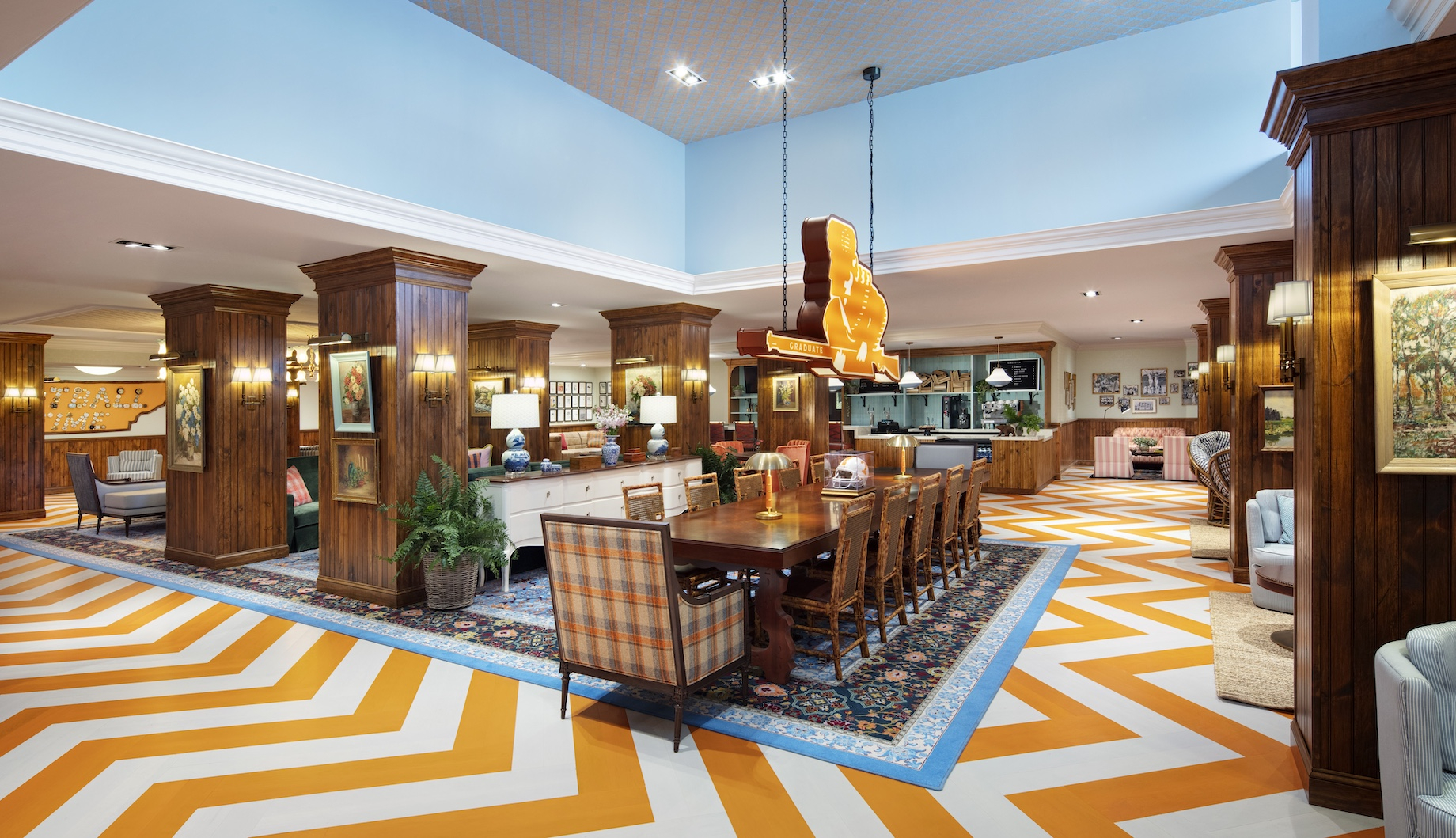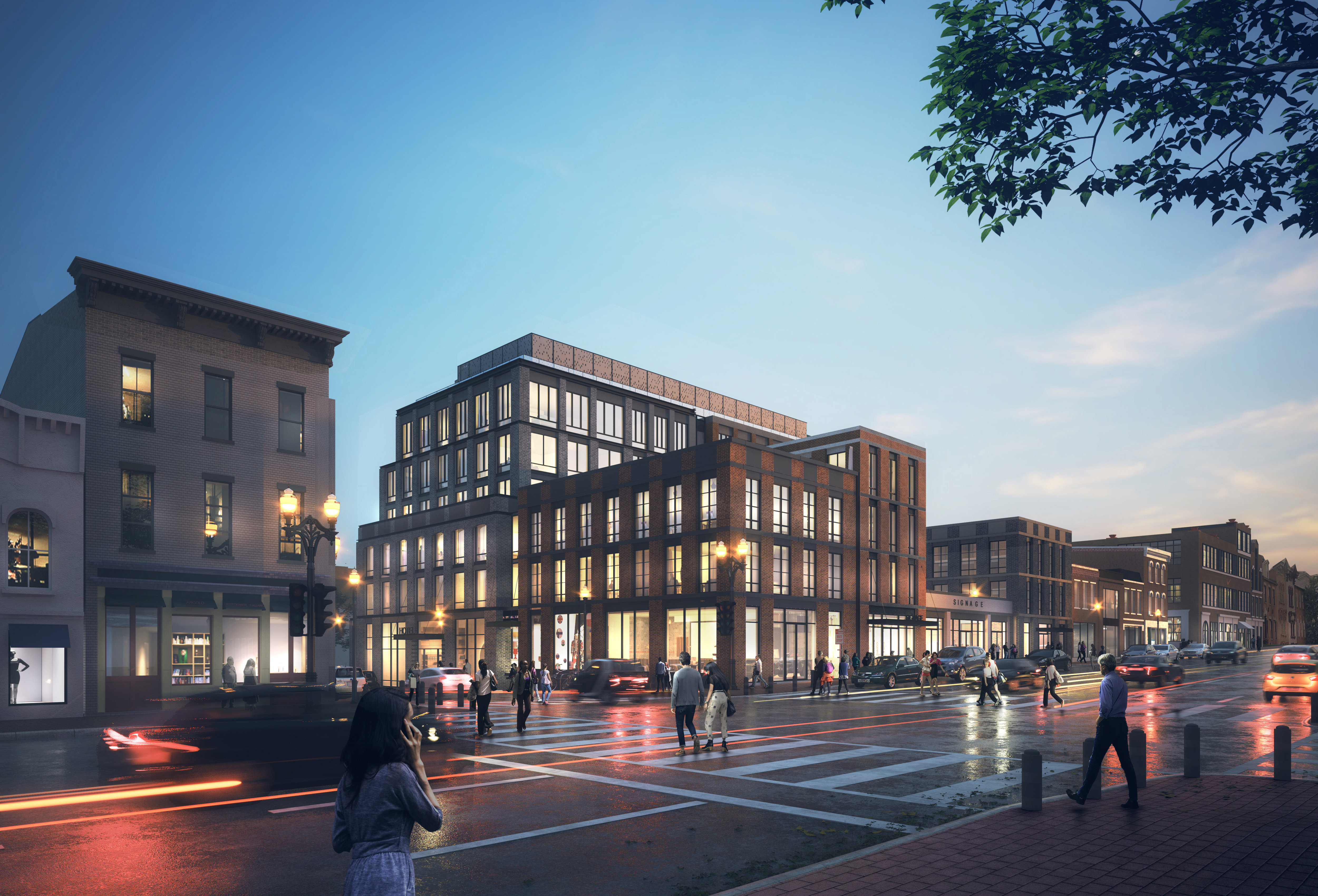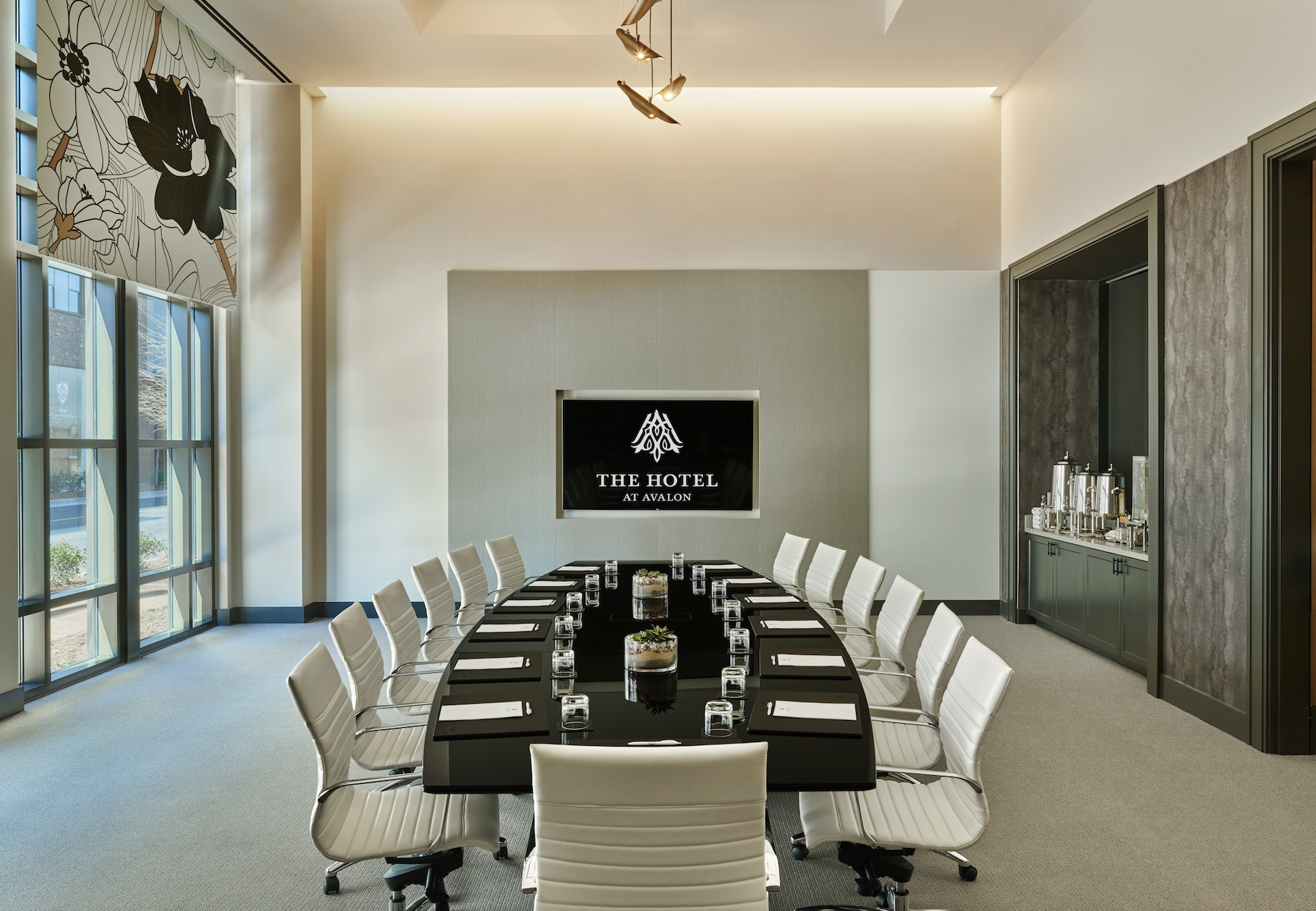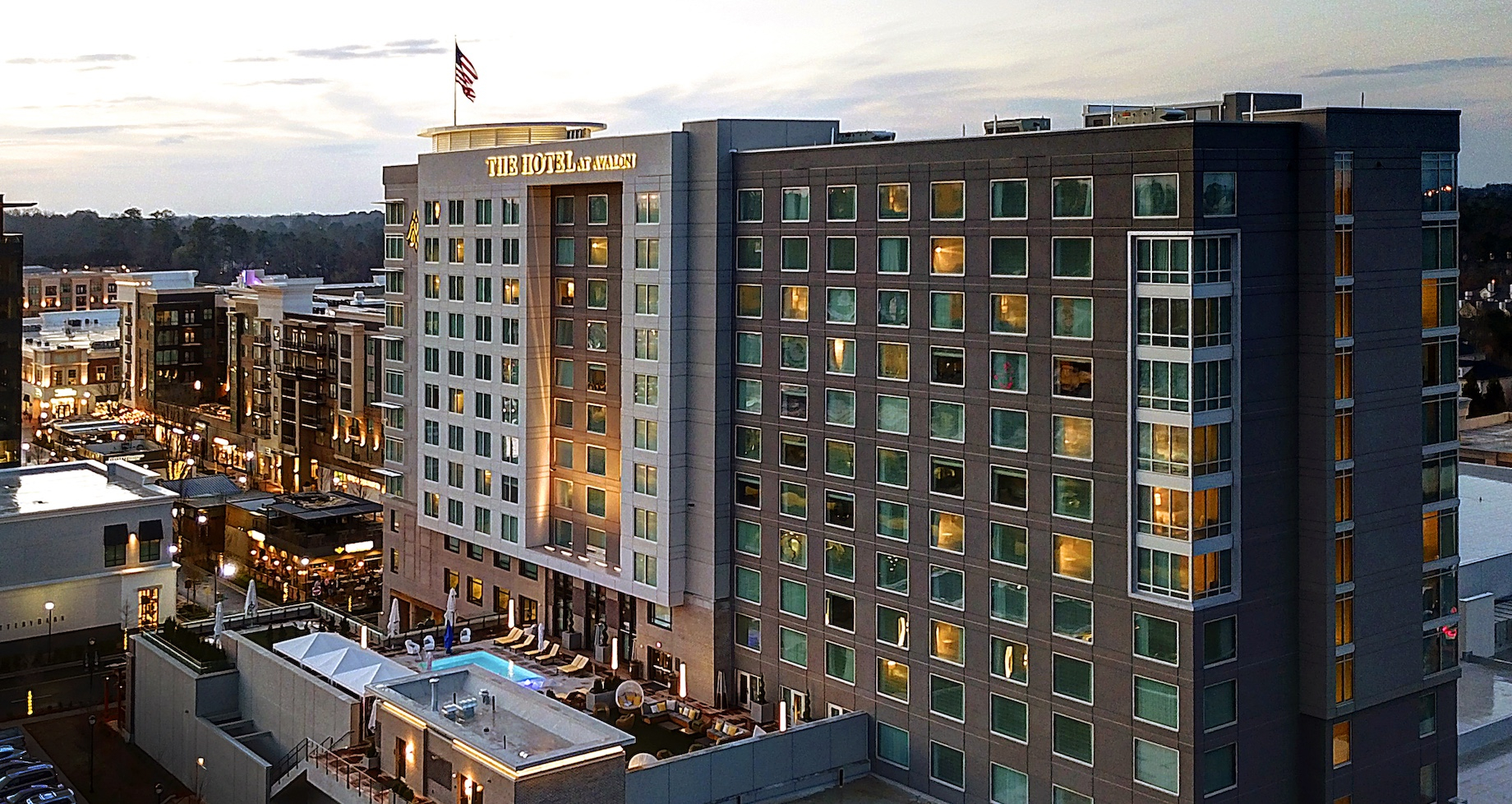The growth of new hotel brands, the shift toward experiential real estate projects and even the Fed’s latest round of rate cuts all stand to draw retail and hotels closer together. “Hotels just naturally have synergies with retail,” said Ophelia Makis, JLL Hotels & Hospitality research analyst for the Americas. “They can drive a lot of traffic, especially lifestyle or luxury hotels that are conveniently located in high-growth markets.”
More from C+CT
How Retail and Multifamily Work Together
How Retail and Office Work Together
How Retail and Industrial Work Together
The recent 50-basis point interest rate cut likely will spur more hotel acquisitions and renovations, a trend that could boost traffic to retailers and restaurants near these reinvigorated properties. “Anything that reduces the cost of capital can help transactions,” said Dan Peek, JLL Hotels & Hospitality president of the Americas, “and we’ll probably see 100 or 150 basis points in total [rate] reduction between now and the middle of 2025.”
For value-add hotel deals, the typical pattern is for investors to acquire dated properties, renovate them and then sell them after five or seven years, Peek noted. “We happen to be in a place in the market where some hotels have gotten pretty long in the tooth.”
Even before the rate cut, observers said, the hotel industry was seeing an upswing in asset acquisitions, mergers and acquisitions, and investor and lender interest. LW Hospitality Advisors co-founder, president and CEO Daniel Lesser recorded 90 single-asset, greater-than-$10 million hotel sales in the second quarter. These deals totaled more than $4 billion, Lesser noted, and included about 14,350 hotel rooms, each worth an average of $279,000. By comparison, LWHA tracked 66 sales of similar hotels in the first quarter. They totaled about $2.5 billion and included approximately 10,700 rooms worth an average of $230,000, Lesser said.
Global private-equity firm Henderson Park announced in May that it had acquired the refurbished Arizona Biltmore in Phoenix from Blackstone Real Estate for $705 million. Henderson Park chief investment officer and CEO Nick Weber said the company and its partners “will position this iconic hotel for continued success.” Built in 1929, the 39-acre resort boasts multiple food-and-beverage outlets, more than 200,000 square feet of meeting space, a 28,000-square-foot spa and seven swimming pools.
Hotel investors’ opportunistic, value-add plays will be “great drivers for retail” under the right conditions, Makis said. “That’s something we’ve seen with the Arizona Biltmore and a few others, too. … There are definitely a lot of opportunities out there today to add more value to hotels and resorts.”
Lifestyle Hotels & Lifestyle Retail
Large hospitality corporations once operated relatively few nameplates — such as Hilton, Hyatt and Marriott. But in a bid to “appeal to more people with more tastes and more demands,” hotel companies continue to launch narrowly targeted brands, Peek said. He cited boutique and lifestyle entries like Hilton Hotels and Resorts’ Motto and Canopy, Hyatt Hotels Corp.’s Andaz and Caption and Marriott International’s Moxy Hotels and Aloft Hotels. This past January, IHG Hotels & Resorts announced that its Hotel Indigo was “poised to double its reach in the next three to five years,” with more than 150 locations open and 130 in development. Six of the company’s 19 brands are classified as luxury or lifestyle.
Within hotel tiers like select-service, full-service, extended-stay and luxury, individual brands are now much more segmented by the demographic profiles of their target customers, Peek noted. On the luxury end, for example, Marriott’s The Ritz-Carlton tends to cater to older guests, while its Edition appeals to younger ones. “You see that across the brands,” Peek said. “It’s definitely a big part of the growth.”
Hilton, which maintains a 24-brand portfolio, has been active in the lifestyle category. This past March, it announced an agreement to acquire all global rights to lifestyle brand Graduate Hotels for $210 million, while AJ Capital Partners will continue to own the 35-or-so properties themselves. Located in college towns, Graduate hotels “reflect the unique character” of their local schools, Hilton said. Guests stay at them for events like game days, reunions, graduations and campus visits.

Lifestyle brands are particularly well-suited to retail-rich, mixed-use districts and projects. This year, Hilton added college-focused Graduate Hotels to its portfolio. Pictured is the lobby of the Graduate Hotel in Knoxville, Tennessee, which sports The University of Tennessee’s white and orange. The property is located near a commercial corridor called the Strip and near the university. Photo credit: Graduate Hotels
The growth of hotel lifestyle and luxury brands can create opportunities for the Marketplaces Industry. As Makis sees it, signing an IV hydration studio could complement a wellness-focused resort and spa, or upscale retailers could colocate with a luxury hotel brand at a mixed-use property.
Retailers Opening Hotels
Hotel conglomerates aren’t the only ones focused on hospitality growth. “Retailers, especially at the luxury end, are now trying to get into the hotel space, branding hotels with their own identity,” including Fendi, Karl Lagerfeld, Louis Vuitton and Bvlgari, Lesser said. The Baccarat Hotel New York on West 53rd Street bears the 260-year-old name of the French luxury house and boasts its own Baccarat boutique. According to a company website, Baccarat Hotels are planned for several global cities, as well.

In September 2022, the Baccarat boutique, above, opened to guests and visitors alike on The Baccarat Hotel New York’s second floor. Photo credit: Baccarat Hotel New York
“The level of service, the level of luxury and the whole exclusivity of the experience that you get there elevates the way the product is viewed by a consumer,” said Johnathan Garrison, principal of interior design and architecture firm G.A Group. “It’s beneficial for both the hotel and for the retail component.”
Peek cited the 152-room Nobu Hotel Atlanta, which opened in 2022 at Simon’s Phipps Plaza mixed-use project. Renowned Japanese chef Nobu Matsuhisa and his business partners, who include actor Robert De Niro, parlayed the 30-year-old Nobu restaurant brand into Nobu Hospitality. The global company operates 18 luxury hotels and has 21 locations on the way, according to its site. Another notable chef, Jose Andres, is parlaying his restaurant reputation into the hotel side of hospitality, too. Jose Andres Group and Thor Equities plan a 67-key hotel and private membership club called The Bazaar House. The venue — in Washington, D.C.’s Georgetown — will feature multiple food-and-beverage offerings, event space, a wellness center, high-end retail and a private club.

Jose Andres Group and Thor Equities plan a hotel in Washington, D.C.’s Georgetown. The property will provide much more than its 67 rooms: multiple food-and-beverage offerings, event space, a wellness center, high-end retail and a private membership club. Image credit: Winstanley Architects
Both Form Valuable Pieces of the Mixed-Use Puzzle
Higher-tier luxury and lifestyle hotels can deliver huge benefits to retail and mixed-use properties, which is why North American Properties Atlanta, set to be acquired by Jamestown, prioritizes this component, said NAP Atlanta managing partner Tim Perry. One example is Scout Living at Jamestown’s Ponce City Market mixed-use project in Atlanta. The 405-key, 22-floor building, which opened on Sept. 30, offers proximity to the Atlanta Beltline and shopping and dining in the Old Fourth Ward. The Scout Living units, which can be rented for one day to one year, are furnished like hotel suites but offer ranges, dishwashers, refrigerators, dining tables and kitchenware, a mix that appeals to business travelers, Perry said.
He said NAP Atlanta and joint-venture partner Nuveen Real Estate plan to submit a rezoning request that would allow them to add a boutique hotel, along with Class A office and luxury multifamily, to mixed-use Birkdale Village in Huntersville, North Carolina. With 125 rooms, 10,000-square-feet of meeting space and a 3,000-square-foot restaurant, the five-story hotel would be built in what is now a parking lot at the development’s main entrance along State Highway 73.
Likewise, NAP Atlanta plans to add a 150-key, full-service hotel to metro Atlanta’s Forum Peachtree Corners open-air lifestyle center, Perry said. Site prep should start in mid-2025. Multifamily also will be part of the phased redevelopment. NAP Atlanta and Nuveen completed major upgrades to The Forum’s public spaces and retail experience in August.
Hotels generate strong traffic and meet the varied needs of retailers and restaurants, office workers, apartment residents and local visitors at NAP Atlanta’s mixed-use properties, Perry said. Throughout this year, the Hotel at Avalon in Alpharetta, Georgia’s 1.2 million-square-foot Avalon mixed-use property has maintained an average occupancy of about 80%, he said. The 330-key hotel’s 96,000 room nights this year already have topped 2023’s total nights by 4,000, and the hotel’s 44,000-square-foot Alpharetta Conference Center, built as part of a public-private partnership, has landed more than 360 bookings so far in 2024. The luxury hotel, part of Marriott’s Autograph Collection, also boasts a restaurant and bar by Intown Atlanta’s award-winning South City Kitchen.

Hotel meeting space can support both office and retail occupancy at mixed-use properties. Alpharetta, Georgia’s Hotel at Avalon offers 44,000 square feet of meeting space via the Alpharetta Conference Center. Photo credit: The Hotel at Avalon

Staycations are among the trends bolstering occupancy at The Hotel Avalon in Alpharetta, Georgia, said North American Properties Atlanta’s Tim Perry. NAP Atlanta said the hotel has maintained about 80% occupancy this year. That above-market traffic strengthens the performance of retailers and restaurants at the 1.2 million-square-foot Avalon mixed-use property. Photo credit: The Hotel at Avalon
Bigger Spenders
Generally, the newest multifamily residents will spend more time shopping and dining, typically on weekends and in the evenings, than those who have lived at a mixed-use property for a few years, Perry said. Hotel guests, by contrast, tend to be eager to venture out and spend. “If you have a boutique hotel, that’s 150 keys where 80% of the guests are different every night.”
Business travelers also drive sales during typically slower weekdays, the developer added. They might walk around and shop before they check in, get lunch between client meetings or join colleagues for happy hour. A hotel supports office occupancy in turn, as companies want visiting clients and colleagues to have nearby places to stay. Office tenants also can use a hotel’s boardrooms and conference halls, allowing their own offices to be more efficient in use and in cost, Perry noted.
ALSO CHECK OUT: Cities Are Calling for Mixed-Use Development to Connect Convention Centers to Their Communities
On the multifamily side, “if there’s a hotel on the property, I don’t need another bedroom for when guests come to visit,” Perry said. If renters than can consider, say, one-bedroom apartments when they would have been looking for two-bedroom unit, the property might fall into the price range of more renters, thus bolstering multifamily leasing.
The breakfast outlet at a high-quality hotel also can add value at mixed-use projects. “Especially at a high-sales property like Avalon or Colony Square [in Midtown Atlanta], it’s really hard to make a pure breakfast concept work,” Perry explained. “They open early and close early, which creates a dark storefront during peak afternoon and evening hours, but where it does work is in the hotel, especially with a known or licensed brand that the entire community recognizes.”
Experience Imperative
A compelling experience always has been a priority for the best hotels and resorts, and it’s looming larger for retail and office tenants, as well. “The ‘hotelification,’ so to speak, of commercial real estate is happening as time goes on,” Lesser said. “Walking into retail complexes today, it’s all about entertainment, experience and service.”
Resort-worthy architecture, furnishings, lighting and decor continue to influence other real estate sectors. But the journey should be carefully crafted around the needs of those who will be using the space, said Sean O’Connor, executive creative director of global design firm Downstream. “How you cater to a retail or hotel customer across any of these amenities and services is critical.” He cited The Social Hub, a hospitality concept in Europe that caters to students and business travelers by emphasizing community and connection in its lobbies, restaurants, bars and co-working and meeting spaces. It also offers student-friendly amenities like laundry rooms, free bike-sharing and 24-hour security. The Social Hub has 18 locations in countries like the Netherlands, France, Spain and Poland, and five more in the works, per its website.
O’Connor said The Social Hub’s hotels take up multiple city blocks and are akin to mixed-use destinations unto themselves. Where Social Hubs are rising, “the hotel is the attraction and the reason that retail and complementary services are now being built around these developments.”
By Joel Groover
Contributor, Commerce + Communities Today